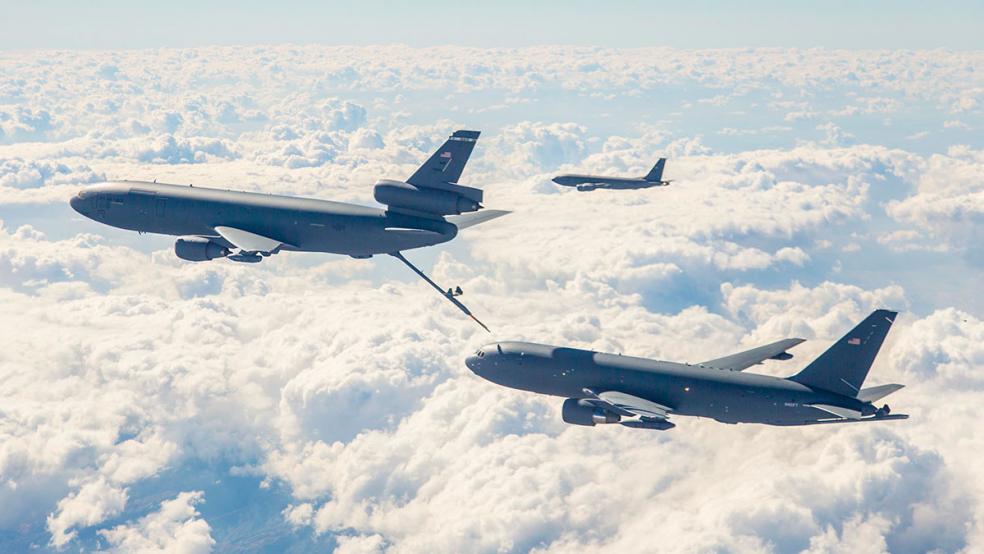The F-35 Joint Strike Fighter isn’t the only major Air Force program that’s been snake-bit with technical delays.
The Friday before the Memorial Day weekend, Boeing announced that it would miss its contractual deadline to deliver 18 KC-46 Pegasus tankers by August 2017 due to problems with the aircraft’s refueling boom.
Related: An Air Force Without Pilots? Critics Call for an Unmanned B-21 Bomber
“Technical challenges with boom design and issues with certification of the centerline drogue system and wing air refueling pods have driven delays to low rate production approval and initial aircraft deliveries,” Brig. Gen. Duke Richardson, the program executive officer for tankers, said in a statement.
Missing the significant milestone is particularly embarrassing because the KC-46 is supposed to be the Air Force’s next flying gas station yet Boeing can’t seem to smooth out the kinks with the refueling system.
Rather than delivering the first aircraft in March 2017 and the last in August, Boeing will begin delivering tankers in August, with the final jet arriving in January 2018, according to Air Force officials. The service plans to buy a fleet of 179 KC-46 tankers from Boeing.
While the plane has successfully refueled F-16 fighter jets in flight tests, the news is the latest in a string of problems that have beset the tanker program in the last couple years.
The program is estimated to have cost around $51 billion to date. Boeing has already had to swallow about $1.3 billion in cost overruns, thanks to the terms of the contract between the Air Force and the defense giant.
Related: Does the Air Force Really Want to Bring Back the Raptor?
The latest delay will likely cause that figure to grow, but by how much remains to be seen.
The current $4.8 billion development contract doesn’t “contain predefined penalties for missing schedule deadlines,” and the Air Force “will seek consideration commensurate” with its impact, a service spokesman told Bloomberg.
While it’s a relief that Boeing, not taxpayers, will pick up the tab for the breach, Air Force leaders can’t be happy that the KC-46, which is supposed to replace the aging KC-135, a plane that was introduced in the 1950s, won’t be flying sooner.





